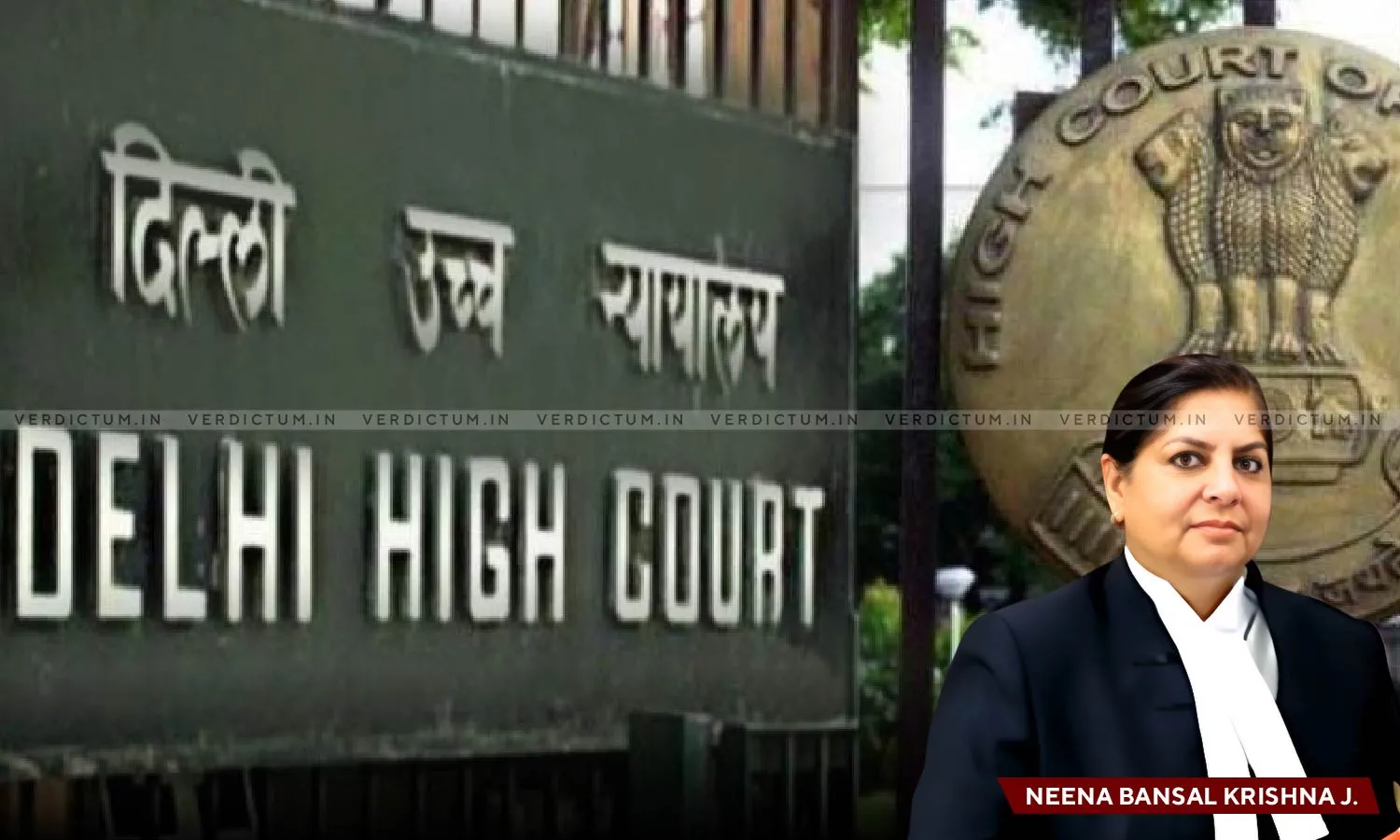Wife’s Right To Reside In Shared Household Not Absolute Under DV Act: Delhi High Court
The Delhi High Court on Monday ruled that a wife's right to reside in the shared household under the Protection of Women from Domestic Violence Act, 2005 (DV Act), is not unconditional, especially if the wife is gainfully employed.
The Single-Bench of Justice Neena Bansal Krishna held so while dismissing an appeal by a woman seeking to retain residence in her marital home despite being employed.
The case involved a wife who had filed a domestic violence case after marital discord arose within a year of her marriage. She had moved into the house of her husband and his family after the wedding but continued living there alone when her husband and in-laws shifted to another residence due to strained relations. Simultaneously, the husband and his family filed a civil suit seeking her eviction from the property.
The wife sought protection under Section 19 of the DV Act, which allows women to claim residence in the shared household, regardless of ownership, provided the woman has resided there after her marriage. However, after discovering that the woman was employed with Accenture Solutions Private Limited and held an MBA degree, the lower courts held that she was not in a helpless situation that would necessitate her continued residence in the shared household.
The magistrate initially restrained the husband and in-laws from evicting the wife and granted her interim maintenance of Rs. 5,000 per month. However, the magistrate later reversed the eviction order upon finding that the wife had secured employment, ruling that her economic independence disqualified her from claiming an absolute right to residence.
The wife appealed this decision before a Sessions court, arguing that under the DV Act, her right to reside in the shared household could not be revoked. The Sessions Court, however, upheld the magistrate's decision, prompting the woman to take the case to the Delhi High Court.
In its October 21 order, the High Court dismissed the wife's appeal, stating that her employment status weakened her claim to an absolute right to reside in the shared household.
The Court noted that while Section 19 of the DV Act recognizes a daughter-in-law’s right to reside in the shared household, this right is not absolute and is subject to legal conditions, including eviction through due process and the provision of alternative accommodation or rent.
“No absolute right of residence can be claimed by the petitioner. She herself is an educated woman who has done her MBA and is employed. It is not a case where she is helpless or where any attempt is being made to leave her without shelter,” the Court observed.
The Court further emphasized that the petitioner’s elderly father-in-law, who owns the house, should not be deprived of his residence in his advanced age. The magistrate had ordered that an alternative flat in the same colony be provided to the wife on rent, ensuring she would not be rendered homeless.
The Court concluded that there was no error in the orders of the lower courts and dismissed the wife's appeal, reiterating that her right to residence under the DV Act must be balanced against other considerations, including the rights of the property owner and her own financial independence.
"There is no infirmity in the Order of the learned M.M which has been rightly upheld by the learned District & Sessions Judge. The present petition has no merit which is hereby dismissed along with application, if any," the Court ordered.
Cause Title: XYZ v. State of NCT of Delhi [Neutral Citation No. 2024: DHC: 8136]
Appearance:-
Petitioner: Advocates Neeraj Gupta, Prateek Goswami
Respondent: Additional Public Prosecutor Hemant Mehla, Advocates Anuj Jain, Jai Gaba
Click here to read/download the Judgment



